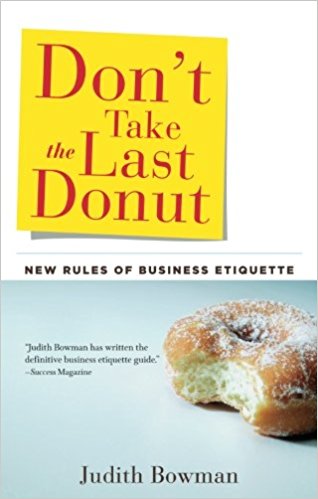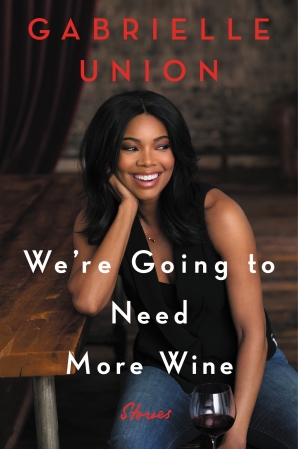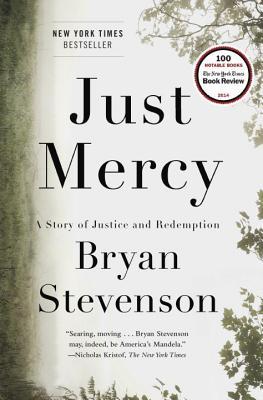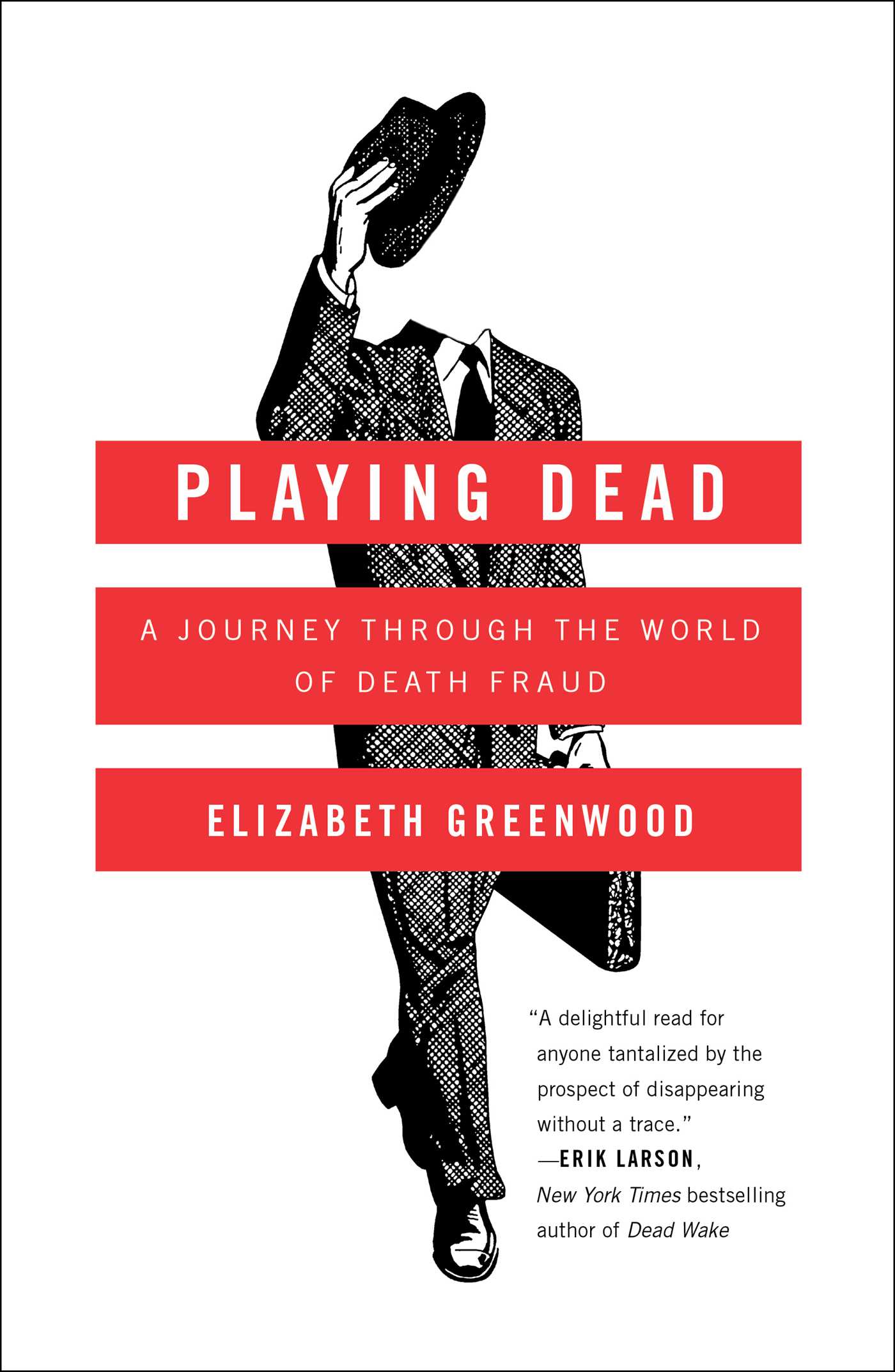Don’t Take the Last Donut by Judith Bowman
Written by Ashley Kelmore, Posted in Reviews
Two Stars
Best for: People looking for a time capsule that explains lots of what’s wrong with business.
In a nutshell: Protocol expert offers some … traditional ideas about what is proper etiquette in the business world.
Line that sticks with me: “There is merit to the thought the more professional the woman, the longer her hemline.” The fuck?!
Why I chose it: Someone gave it to my husband (I think) and as someone who runs her own small etiquette blog (https://www.hownottobeanassholewhen.com/), I love reading up on what other people have to say.
Review: Do any of you read Ask a Manager? It’s a great website full of advice on workplace challenges. Just last week, there was a letter that discussed someone being fired for wearing a costume at work on Halloween, and then trick or treating in a meeting of high-level executives and clients. Pretty much all of the commenters on the site agreed that the trick-or-treating showed extremely poor judgment, but I was surprised at how many thought that just DRESSING UP ON HALLOWEEN showed extremely poor judgment. I get that I don’t work in finance, but my goodness I wish more people in business would pull the stick out of their ass.
That said, this book would probably be a perfect read for those who think that it’s a breach of professionalism for a woman to wear a suit in a color other than navy blue, black, or charcoal gray. But that’s not just it. It’s that every component of what Ms. Bowman considers appropriate protocol is focused on this weird manipulation and power game. I haven’t worked in the private sector in a dozen years (I’m a government gal), but holy shit. Picking a seat based on which has the most power? Offering my hand first for a handshake to show I’m dominant? Are we cavemen? The hell?
This is a two-star for me because there are some tips in there that can be helpful. But so much of it falls somewhere between eye-roll and throwing the book across the room. She judges a woman as unprofessional for not wearing make-up. She thinks the most important thing when introducing people is to make everyone’s status clear to everyone else. She repeatedly talks about control and power positions. In the sample statements she offers, she sounds like a robot.
Part of the book also suffers from being technologically dated. She seems to dismiss websites as fine to have but not necessary; she thinks what will matter most is the quality of paper stock promotional papers are printed on. She also has a whole chapter on gender but focuses on what women should be doing to fit in. It feels like it was written in 1981.
I love etiquette. I think it matters that we treat other people respectfully. But this book isn’t about any version of respect that I buy into – it’s about manipulating situations to get power and about conforming to very narrow ideas of what ‘professional’ means. Not cool.







